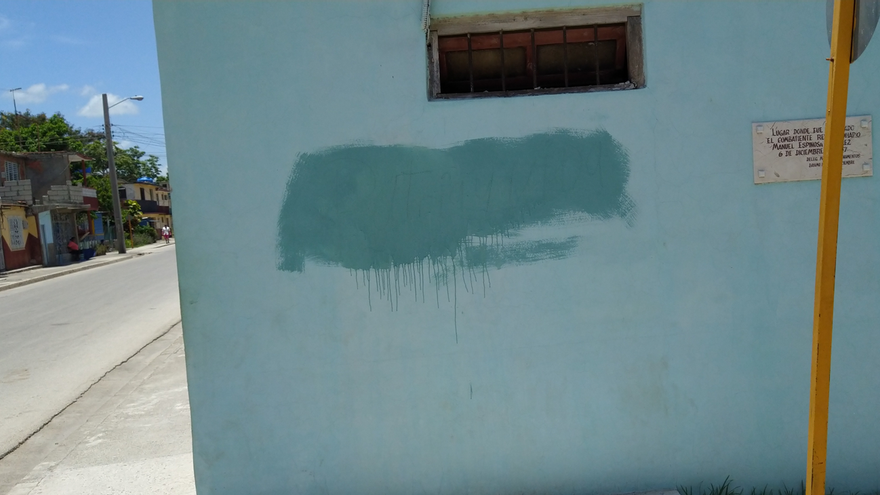
![]() 14ymedio, Bayamo, 4 August 2022 — Things are changing in Cuba and not only in the capital. The residents of Bayamo, in modest Granma Province, no longer remain silent in the face of blackouts and openly challenge the authorities.
14ymedio, Bayamo, 4 August 2022 — Things are changing in Cuba and not only in the capital. The residents of Bayamo, in modest Granma Province, no longer remain silent in the face of blackouts and openly challenge the authorities.
Last Tuesday, a group of people gathered at the Altar of the Heroes, next to the monument that marks the place of the first open-air cemetery in America, and cried out against the long power cuts.
Two people passed by on a motorcycle in front of a state company and one of them, megaphone in hand, shouted: “Díaz-Canel, singao!”* before the eyes of a group of people who burst into laughter. A colonel from the Ministry of the Interior, who was present, demanded that witnesses confront the two rebels, but this only managed to increase the laughter.
On Monday night, in the Bayamés neighborhood of Camilo Cienfuegos, a group of people, in front of the patrol cars that guarded the streets, shouted “Viva Díaz-Canel,” “Viva la Revolución,” in a way that mocked those responsible for the energy situation. A few hours earlier, another protest with people banging on pots and pans had taken place in Mabay, a rural area of Bayamo, where shouts were heard of “the people, united, will never be defeated.”**
Discomfort is growing in a population where power outages exceed 10 and 14 hours, programmed in two and three cycles of blackouts during each day this summer. Posters with slogans and messages against the Government and the president are evident even in broad daylight, and they have barely been able to cover them with a couple of brush strokes of fresh paint.
The explanations of the Electrical Union are no longer of any use to the population, who don’t understand why they must endure so many hours without electricity. “But Felton [power plant] generates for [the State newspaper] Granma?” asked a neighbor of the province when the newspaper La Demajagua announced more cuts due to the loss of the thermoelectric plant, which contributes 500 MW to the system but has two units in constant breakdown. “And don’t tell me that it’s a national system because, if so, the people of Havana will also have 14 hours of blackout per day. And my congratulations to those who have earned that respect.”
For this Thursday, the Electrical Union has announced a deficit of 618 MW. Demand will be around 2,900 MW at its maximum, and the availability is barely 2,352 MW.
The Mariel thermoelectric plant has three damaged units, which is in addition to the two of Felton, the four of Nuevitas, the six of Renté and the only one of Otto Parellada. In addition, there is another unit under maintenance in Cienfuegos, and, due to a problem in the Energas Varadero steam turbine, more MW are out of generation.
Finally, we must add the problems of distributed generation, where 1,115 MW are missing due to breakdowns and almost 500 MW due to maintenance.
“The truth is that there is tremendous disorder, every day he reads the same story, only the numbers and thermoelectric plants change,” a user responded to the Electric Union statement. Meanwhile, others continue to insist on taking the drama with humor: “Did they patch up the Felton thermoelectric plant with children’s modeling clay?”
Translator’s notes:
*Cuban slang for “motherfucker,” “asshole” or “bastard.” Part of the appeal of this particular insult is that it rhymes with Diaz-Canel.
**A slogan of the Chilean Unidad Popular party of leftist President Salvador Allende.
Translated by Regina Anavy
____________
COLLABORATE WITH OUR WORK: The 14ymedio team is committed to practicing serious journalism that reflects Cuba’s reality in all its depth. Thank you for joining us on this long journey. We invite you to continue supporting us by becoming a member of 14ymedio now. Together we can continue transforming journalism in Cuba.
